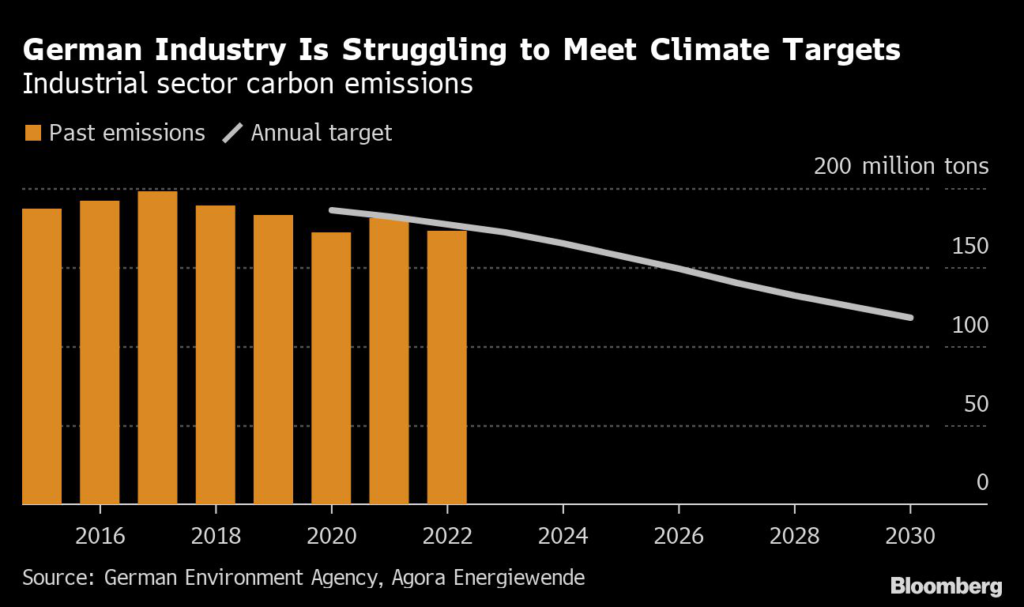Companies in Germany’s industrial heartland are continuing to burn dirty fuels like coal and oil that were adopted as a temporary solution at the height of Europe’s energy crunch last year.
(Bloomberg) — Companies in Germany’s industrial heartland are continuing to burn dirty fuels like coal and oil that were adopted as a temporary solution at the height of Europe’s energy crunch last year.
Carmaker Volkswagen AG, cosmetics manufacturer Henkel AG and chemical giant Evonik AG are among the industrial heavyweights continuing to use coal after they were legally permitted to delay a planned switch away from the highly polluting fuel to cleaner gas.
BASF SE, which can switch its turbine between gas and fuel oil, is using the dirtier option which emits around 1.5 times more carbon emissions.
Even though wholesale gas prices have fallen to about a sixth of last summer’s peaks, companies are reluctant to use the fuel after it was weaponized by Moscow in response to Western sanctions.
Signs that the temporary fix will be more permanent pose a huge setback for cutting carbon in Europe’s most polluting economy.
Germany is expected to struggle for years to fully replace the supplies it once sourced from Russia, and executives are unwilling to risk volatile gas prices — even if alternatives are more emissions-heavy.
Although gas in the spot market has fallen, supply deals offered to companies are still much more expensive, said Sebastian Bolay, energy expert at the trade and industry group DIHK.
As long as this remains the case, companies will rely on fuel oil, he said.
The transition away from fossil fuels is being delayed across Europe as nations scramble to secure alternative supplies to replace Russia.
Germany, which was previously highly dependent on Moscow, pressured all corners of its economy to save resources, while also prolonging the life of several dormant coal plants to make up for the shortfall until March 2024.
The country aims to cut emissions by nearly two thirds compared to 1990-levels by 2030, but has so far only managed a reduction of about 39%.
“Achieving reduction targets in this situation will certainly be challenging, to impossible,” said Veronika Grimm, part of the five-member council of economic experts that advises the government.
While lower gas use helped cut industry carbon dioxide emissions by about 8 million metric tons, the sector could have saved around 12 million tons had it not been for the fuel switch to coal and oil, according to Frank Peter, a director at the Agora Energiewende think tank in Berlin.
Germany burned coal for electricity at the fastest pace in at least six years last year.
More recently, some parts of German industry have started ramping up production again and increasing gas consumption, facilitated by cheaper prices after a mostly mild winter.
The risk is if factory activity drives up prices, “we will certainly see a savings effect for natural gas again, but also an increased use of particularly dirty fuels,” Peter said.
More stories like this are available on bloomberg.com
©2023 Bloomberg L.P.










